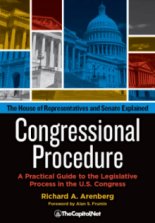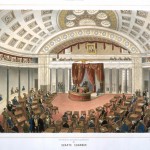Majority Leader (CongressionalGlossary.com)
From the Congressional Glossary – Including Legislative and Budget Terms Majority Leader The Majority Leader is elected by her party colleagues. In the Senate, the Majority Leader, in collaboration with the Minority Leader, directs the legislation schedule for the Senate. Each is her party’s spokesperson and chief strategist. In the House, the Majority Leader is … Read more


